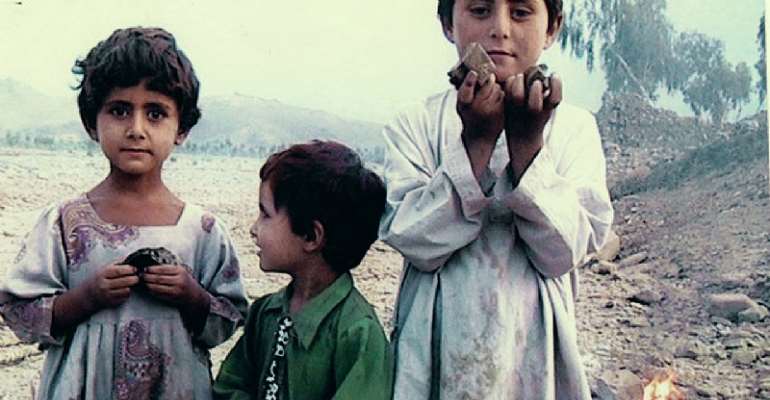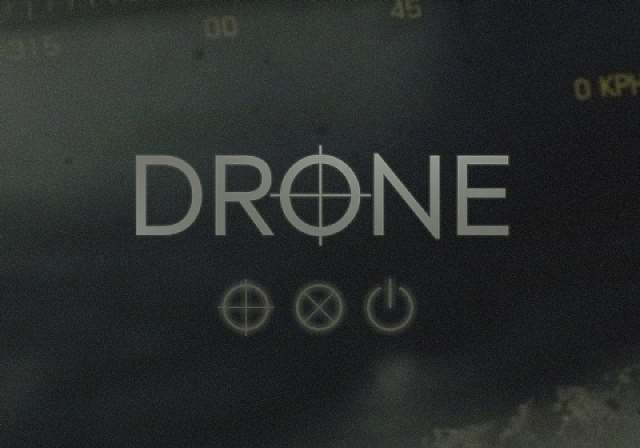Drone---Questioning The Defining Weapon Of The War On Terror

Winner of six international awards, Drone is an upcoming two-part documentary on Al Jazeera English about the defining weapon of the war on terror.
Tracking the rise of drones from their early use catching tuna, the disturbing documentary shows how their remote-controlled form of warfare has both drone pilots and drone strike survivors suffering from post-traumatic stress disorder.
According to Drone, the US military are recruiting drone pilots in their teens at gaming conventions. As former drone pilot Michael Haas says: “I had no idea what I was in for… I wasn’t even 20 years old… I thought it was the coolest damn thing in the world - to play video games all day.”
“Video gamers do have a skillset that is very important and actually enhances the skillset of drone operators,” says Missy Cummings, a former US navy pilot. “We don’t need Top Gun pilots anymore; we need Revenge of the Nerds.”
“There’s always been a connection between the world of war and the world of entertainment,” says P. W. Singer, author of Wired for War. “I call this phenomenon ‘Militainment,’ where the military world is now pulling tools from the world of entertainment to do its job better. The military has invested in creating video games that they’re using as recruiting tools.”
A repeated theme in the documentary is that drone warfare’s combination of distance and invulnerability has a psychological impact and breeds indifference.
“You never know who you’re killing because you never actually see a face – you just have a silhouette, so it’s easy to have that detachment and that lack of empathy for human life,” says Haas. “It’s easy to really just think of them as something else. They’re not people; they’re just terrorists.”
“We sat in a box for nearly 12 hour shifts,” says former drone operator Brandon Bryant. “All the lights were usually off, except for the lights coming from the monitors. We were the ultimate voyeurs, the ultimate peeping toms. No one was going to catch us. We were getting orders to take these people’s lives. It was just point and click.”
According to Drone, the victims of drone attacks are not just terrorists, but innocent children and civilians, and even their rescuers. This means that drone attacks are arguably breeding the terrorists they seek to remove.
“Tell me how we’re winning, when every time we kill four [potential terrorists], we create 10?” asks Colonel Lawrence Wilkerson, a former chief of staff for Colin Powell. He points out that drone warfare is a particularly dangerous approach, because: “There has never been any technology of warfare that isn’t ultimately adopted by your enemy or enemies.”
Drone is directed by Norwegian Tonje Hessen Schei, who says. “I think the US is setting a very dangerous precedent with their use of drones, killing thousands of people outside declared battlefields, with no transparency or accountability. There are urgent issues of possible war crimes, human rights and international laws of war that need our immediate attention. With Drone, we give a voice to people on different sides of the new warfare, and I hope the film will spark a much-needed international debate on the US secret use of drones, who we are as a world community, and where we are heading.”
Part one of Drone premieres on Al Jazeera English on Friday, 1 April 2016 at 2000GMT / 2200 CAT, with part two screening at the same time the following week.
Watch and embed the trailer:
For more information, visit www.aljazeera.com or http://www.dronethedocumentary.com/ .
What audiences are saying:
“The film ranges far, wide and deep in its exploration of this distinctively 21st-century form of ‘dehumanized’ combat.” The Globe and Mail
“Acool-headed, finely constructed documentary.” The Guardian
“An important contribution to debates over a means of warfare that is just in its infancy.” The Hollywood Reporter
“A close-up examination of the ramifications of remote warfare… Thought-provoking.” Los Angeles Times
“Needs to be heard.” The New York Times
“A shocking, courageous and very important documentary.” Peace Film Award, Tromsø International Film Festival

